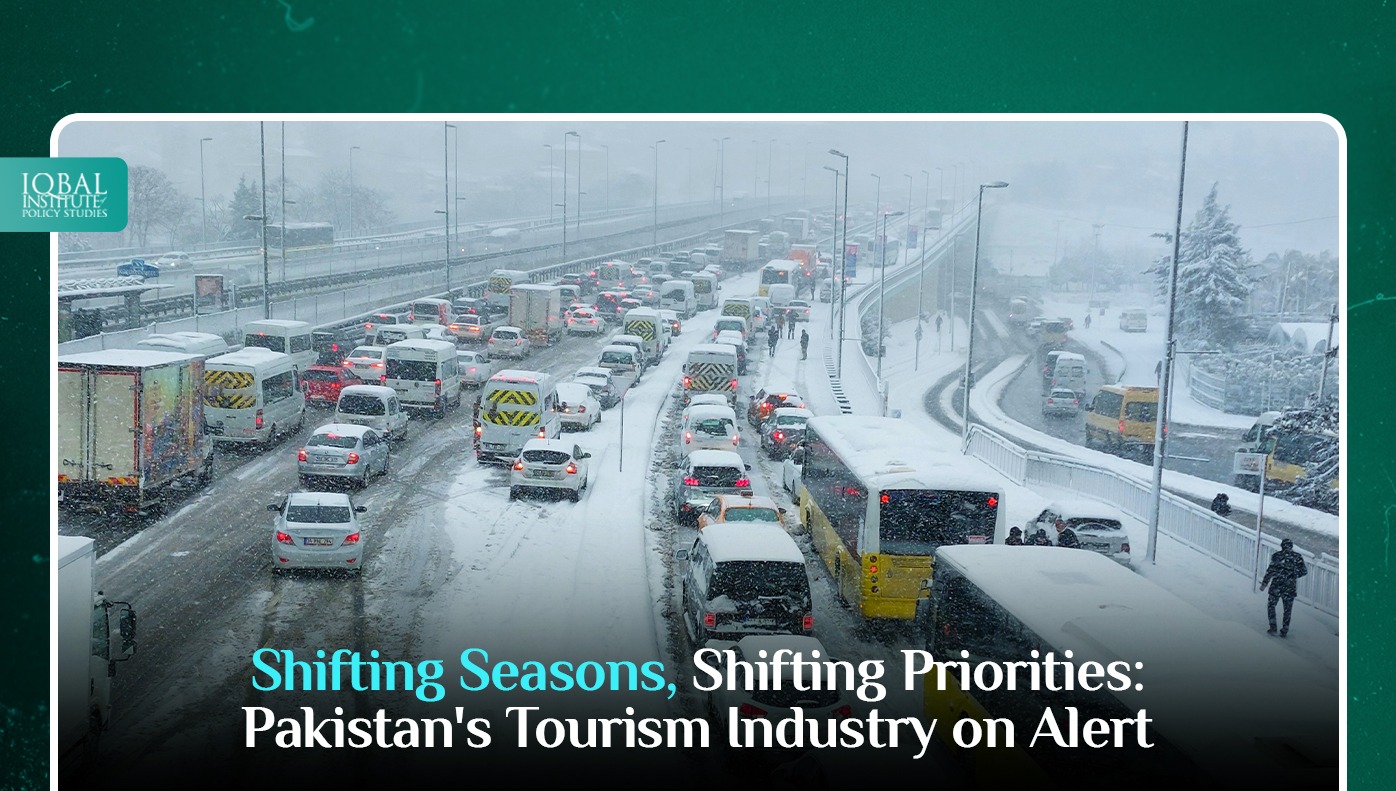Climate change is causing shifts in the seasons, impacting the timing and quality of tourism. Unpredictable weather patterns can deter travelers, disrupt adventure activities like trekking and skiing, and damage the local economy.
One significant impact of shifting seasons due to climate change is the altered timing of peak tourism seasons. Traditionally, Pakistan’s northern regions, including places like Hunza, Skardu, and Swat, have been popular tourist destinations during the summer and early autumn months. However, climate change is causing variations in temperature and precipitation patterns, leading to unpredictability in the timing and duration of these seasons. This unpredictability can deter travelers who plan their visits based on historical weather patterns, impacting the tourism industry.
Delayed or Shortened Seasons
Climate change can lead to a delayed onset of traditional tourism seasons. For instance, in northern areas like Murree, where winter tourism is popular, warmer temperatures and reduced snowfall can cause the winter season to start later. This delay impacts businesses that rely on the winter tourism season, such as ski resorts and hotels. In addition to delayed starts, peak tourism seasons may also become shorter. As temperatures increase, snow may melt earlier in the spring, reducing the duration of skiing and other winter activities in hilly and mountainous regions. The warmer temperatures and delayed snowfall in some areas can affect winter sports and adventure tourism. Ski resorts in northern Pakistan, such as Malam Jabba and Naltar, may experience shorter snowfall periods, leading to a reduced winter sports season. This can have economic consequences for local businesses and may limit the appeal of these destinations to tourists seeking winter activities.
Impact on Local Economy
Shifting seasons can have ripple effects on the local economy. Many businesses in these regions rely heavily on the income generated during peak tourism seasons. The unpredictability of these seasons can lead to reduced revenues for hotels, restaurants, tour operators, and other tourism-related businesses, affecting the livelihoods of the local population. Communities may need support in diversifying their income sources, adapting to new tourism trends, and preparing for extreme weather events that can disrupt tourism activities.
Adaptation Challenges
The tourism industry and local communities face challenges in adapting to these shifting seasons. For instance, investing in infrastructure for tourism, such as hotels and restaurants, requires careful consideration of changing climate patterns. Balancing the need for year-round infrastructure with the uncertainty of shifting seasons can be a logistical and financial challenge.
Diverse Impacts
The impact of shifting seasons is not uniform across the entire country. Southern regions like Karachi may experience hotter and longer summers, potentially discouraging tourists from visiting during peak heat. Conversely, northern areas may see variations in snowfall and rainfall, affecting the natural beauty and recreational opportunities that draw tourists.
Promotion of Year-Round Tourism
To mitigate the effects of shifting seasons, the tourism industry in Pakistan is exploring strategies to promote year-round tourism. This includes diversifying the range of activities available to tourists, such as cultural events, historical site visits, and adventure activities that can be enjoyed in different seasons. Additionally, promoting off-peak travel can help distribute the economic benefits of tourism more evenly throughout the year.
Recommendations
To reduce the dependence on specific peak seasons, diversify the range of tourism offerings. This can include promoting cultural events, historical site visits, and adventure activities that can be enjoyed in different seasons. Encourage tourists to explore less-visited areas and attractions during off-peak times.
Invest in resilient infrastructure that can withstand the challenges of shifting seasons. For instance, construct weather-resistant accommodations and transportation options. This includes ensuring that hotels and restaurants can provide heating during colder months and cooling during hot spells.
Involve local communities in tourism development and decision-making. This can foster a sense of ownership and ensure that the economic benefits of tourism are distributed more equitably, helping communities withstand the challenges of shifting seasons.
Involve local communities in tourism development and decision-making. This can foster a sense of ownership and ensure that the economic benefits of tourism are distributed more equitably, helping communities withstand the challenges of shifting seasons.
Prioritize the protection and preservation of Pakistan’s natural and cultural treasures. Implement measures to safeguard historical sites, natural habitats, and ecosystems that are vulnerable to climate change.
Train and educate tourism stakeholders on climate-resilient practices. This includes disaster preparedness, conservation efforts, and sustainable resource management.
Conclusion
To navigate this changing landscape, the tourism industry must embrace adaptability and resilience. Strategies for diversification, promotion of off-peak tourism, and sustainable practices are crucial in reducing the sector’s vulnerability to shifting seasons. Collaboration between government, the private sector, and local communities is essential to address these challenges effectively. The changing seasons may present obstacles, but they can also be seen as a call to action. Pakistan’s diverse beauty, from its snow-capped mountains to its ancient heritage, is too precious to lose. Let’s embrace the challenges, adapt to the changes, and ensure that Pakistan’s tourism industry remains resilient and sustainable in the face of a warming world. Together, we can protect and preserve the treasures that make Pakistan a remarkable and enduring destination for adventurers and culture enthusiasts alike.
This article is written by Shaan Abbas. Shaan is a research analyst at the Iqbal Institute of Policy Studies (IIPS).



Leave a Reply